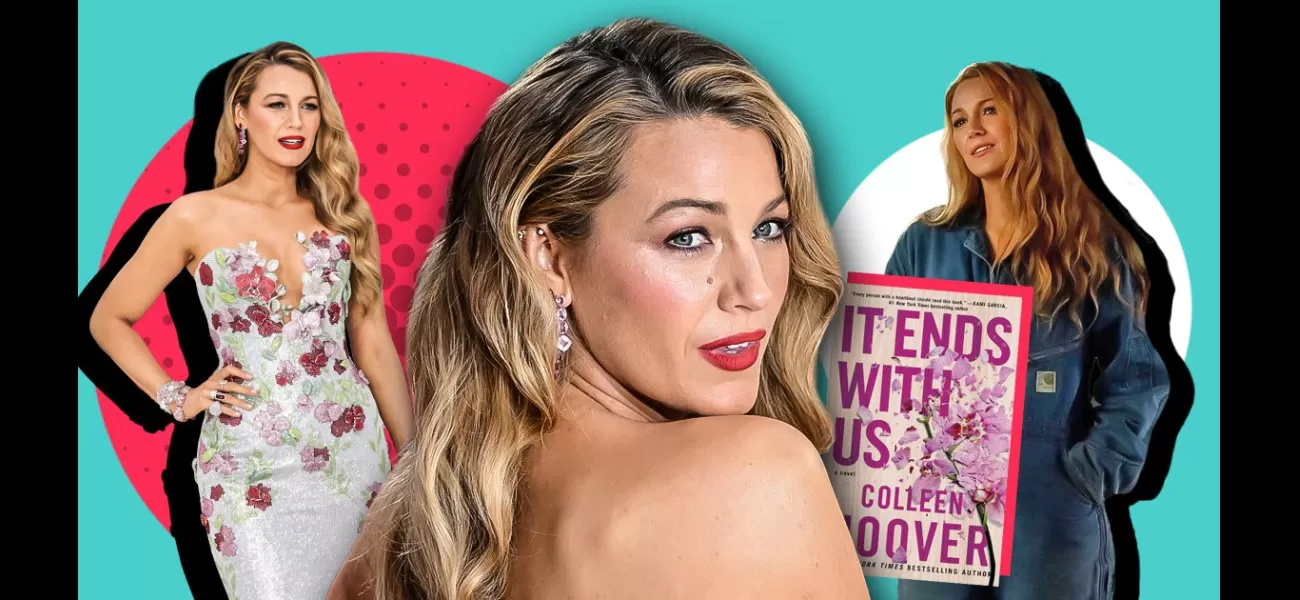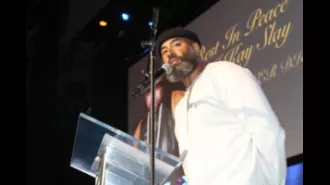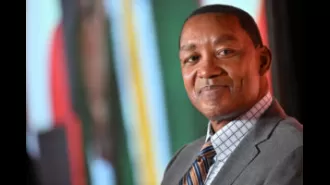BookTok struggles to differentiate between reality and fiction with It Ends With Us.
I have strong feelings for Blake, but...
August 9th 2024.

When the news broke that Blake Lively would be playing the lead role in the film adaptation of Colleen Hoover's novel It Ends With Us, the BookTok community was not happy. Despite Lively's impressive resume, which includes roles in popular shows and blockbuster movies, many fans felt that she was not the right fit for the character of Lily Bloom. As the release date of the film approached, a campaign called "Not Our Lily" started gaining momentum on the popular social media platform.
For many of us, Blake Lively will always be the blonde bombshell Serena Van Der Woodsen from the iconic show Gossip Girl. We have watched her grow and evolve as an actress, taking on challenging roles in action movies like Green Lantern and The Shallows. But it is her lead role in It Ends With Us that has caused the most controversy on BookTok. The novel, which tells the story of a young woman who falls into an abusive relationship, has a passionate fan base who were not happy with Lively's casting.
From the moment the news was announced, fans took to TikTok to express their disappointment. They argued that Lively, at 36 years old, was too old for the role of 23-year-old Lily and that her blonde hair did not match the character's description. Some even pointed out that Lively's appearance did not align with the fragile and hopeful image of Lily portrayed in the book. Early glimpses of the film during filming also sparked criticism, with fans questioning the choice of outfits for the characters.
Instead, fans suggested that actresses like Sadie Sink or Abigail Cowen would have been a better fit for the role. As the campaign gained momentum, fans shared their imagined versions of the characters and expressed their disappointment with the casting choice.
So why do we get so attached to the characters we create in our own minds while reading a book? According to psychologist Dr Lalitaa Sungali, it is because we form emotional connections with them. As we read, we use our imagination to create our own interpretations of the characters, making them reflections of our inner world. When a book is adapted into a film, the casting can shatter the illusions we have built and become attached to, causing disappointment or even anger.
This attachment to our imagined versions of characters can be particularly strong when we resonate with their experiences. When the film fails to match our expectations, it can feel like a personal loss. As Dr Sungali explains, "each reader has a unique vision of what characters look and act like, shaped by their personal interpretations and imagination." This discrepancy between the imagined character and the on-screen portrayal can be jarring and lead to disappointment or anger.
It was not just the casting of Lily Bloom that caused controversy. Fans of the book also expressed their disappointment with the choice of Jane The Virgin's Justin Baldoni as the abusive love interest, Ryle. Some suggested that actors like Theo James would have been a better fit. However, this is not the first time a book-to-film adaptation has faced backlash. In 2015, Cara Delevingne's casting as Margo in Paper Towns also received criticism.
Literature expert William Green explains that this initial backlash is not uncommon, even in highly successful adaptations like The Hunger Games. Fans were initially skeptical of Jennifer Lawrence's casting as Katniss Everdeen, but her performance won them over. Green believes that this is a natural part of the process of bringing a book to life on screen. While the initial reactions can be intense, fans often come around to the idea once they see the actors' performances.
As the It Ends With Us press tour kicked off, fans started to warm up to Blake Lively, who was enthusiastically received by fans for her floral outfits - a nod to Lily's flower shop in the book. The film's release will ultimately determine if BookTok's "Not Our Lily" campaign was justified or if Lively's performance proves skeptics wrong.
The pressure for book-to-film adaptations to match fans' expectations is not going away anytime soon. With upcoming adaptations like A Court of Thorns and Roses and Fourth Wing, fans are already making their own dream castings. And if things don't go their way, it may take time for them to come around. As Dr Sungali explains, "the investment in these characters can be so profound that we feel a genuine sense of loss or longing, despite knowing they are not real." Our emotional connection to these characters is a testament to the power of storytelling and our need for meaningful connections.
In the end, only time will tell if BookTok's "Not Our Lily" campaign was justified. But regardless of the outcome, the journey of bringing a book to life on the big screen is always a fascinating one. As William Green puts it, "It's all part of the journey of blending the old with the new and sharing stories with a wider audience."
For many of us, Blake Lively will always be the blonde bombshell Serena Van Der Woodsen from the iconic show Gossip Girl. We have watched her grow and evolve as an actress, taking on challenging roles in action movies like Green Lantern and The Shallows. But it is her lead role in It Ends With Us that has caused the most controversy on BookTok. The novel, which tells the story of a young woman who falls into an abusive relationship, has a passionate fan base who were not happy with Lively's casting.
From the moment the news was announced, fans took to TikTok to express their disappointment. They argued that Lively, at 36 years old, was too old for the role of 23-year-old Lily and that her blonde hair did not match the character's description. Some even pointed out that Lively's appearance did not align with the fragile and hopeful image of Lily portrayed in the book. Early glimpses of the film during filming also sparked criticism, with fans questioning the choice of outfits for the characters.
Instead, fans suggested that actresses like Sadie Sink or Abigail Cowen would have been a better fit for the role. As the campaign gained momentum, fans shared their imagined versions of the characters and expressed their disappointment with the casting choice.
So why do we get so attached to the characters we create in our own minds while reading a book? According to psychologist Dr Lalitaa Sungali, it is because we form emotional connections with them. As we read, we use our imagination to create our own interpretations of the characters, making them reflections of our inner world. When a book is adapted into a film, the casting can shatter the illusions we have built and become attached to, causing disappointment or even anger.
This attachment to our imagined versions of characters can be particularly strong when we resonate with their experiences. When the film fails to match our expectations, it can feel like a personal loss. As Dr Sungali explains, "each reader has a unique vision of what characters look and act like, shaped by their personal interpretations and imagination." This discrepancy between the imagined character and the on-screen portrayal can be jarring and lead to disappointment or anger.
It was not just the casting of Lily Bloom that caused controversy. Fans of the book also expressed their disappointment with the choice of Jane The Virgin's Justin Baldoni as the abusive love interest, Ryle. Some suggested that actors like Theo James would have been a better fit. However, this is not the first time a book-to-film adaptation has faced backlash. In 2015, Cara Delevingne's casting as Margo in Paper Towns also received criticism.
Literature expert William Green explains that this initial backlash is not uncommon, even in highly successful adaptations like The Hunger Games. Fans were initially skeptical of Jennifer Lawrence's casting as Katniss Everdeen, but her performance won them over. Green believes that this is a natural part of the process of bringing a book to life on screen. While the initial reactions can be intense, fans often come around to the idea once they see the actors' performances.
As the It Ends With Us press tour kicked off, fans started to warm up to Blake Lively, who was enthusiastically received by fans for her floral outfits - a nod to Lily's flower shop in the book. The film's release will ultimately determine if BookTok's "Not Our Lily" campaign was justified or if Lively's performance proves skeptics wrong.
The pressure for book-to-film adaptations to match fans' expectations is not going away anytime soon. With upcoming adaptations like A Court of Thorns and Roses and Fourth Wing, fans are already making their own dream castings. And if things don't go their way, it may take time for them to come around. As Dr Sungali explains, "the investment in these characters can be so profound that we feel a genuine sense of loss or longing, despite knowing they are not real." Our emotional connection to these characters is a testament to the power of storytelling and our need for meaningful connections.
In the end, only time will tell if BookTok's "Not Our Lily" campaign was justified. But regardless of the outcome, the journey of bringing a book to life on the big screen is always a fascinating one. As William Green puts it, "It's all part of the journey of blending the old with the new and sharing stories with a wider audience."
[This article has been trending online recently and has been generated with AI. Your feed is customized.]
[Generative AI is experimental.]
0
0
Submit Comment





